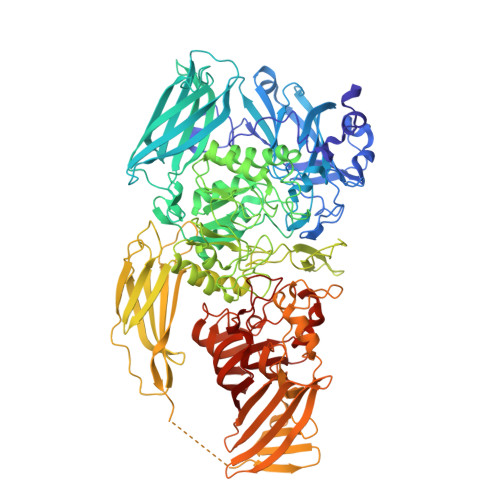1.8 angstrom resolution structure of beta-galactosidase with a 200 kV CRYO ARM electron microscope.
Merk, A., Fukumura, T., Zhu, X., Darling, J.E., Grisshammer, R., Ognjenovic, J., Subramaniam, S.(2020) IUCrJ 7: 639-643
- PubMed: 32695410
- DOI: https://doi.org/10.1107/S2052252520006855
- Primary Citation of Related Structures:
6X1Q - PubMed Abstract:
We report the determination of the structure of Escherichia coli β-galactosidase at a resolution of ∼1.8 Å using data collected on a 200 kV CRYO ARM microscope equipped with a K3 direct electron detector. The data were collected in a single 24 h session by recording images from an array of 7 × 7 holes at each stage position using the automated data collection program SerialEM . In addition to the expected features such as holes in the densities of aromatic residues, the map also shows density bumps corresponding to the locations of hydrogen atoms. The hydrogen densities are useful in assigning absolute orientations for residues such as glutamine or asparagine by removing the uncertainty in the fitting of the amide groups, and are likely to be especially relevant in the context of structure-guided drug design. These findings validate the use of electron microscopes operating at 200 kV for imaging protein complexes at atomic resolution using cryo-EM.
- Cancer Research Technology Program, Frederick National Laboratory for Cancer Research, Leidos Biomedical Research, Inc., Frederick, MD 21701, USA.
Organizational Affiliation:


















